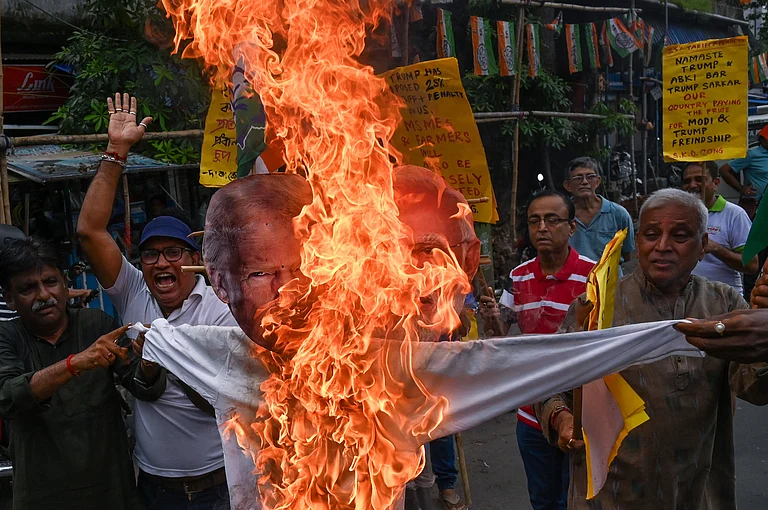When India was celebrating 75 years of Independence last year, 11 men who were convicted of gang-raping Bilkis Bano and slaughtering her family during the 2002 riots in Gujarat, walked free after the state government released them ‘on good behaviour’. “How can justice for a woman end like this? I trusted the highest courts in our land,” Bano had said, at the time of release in August 2022. A year later, the Gujarat government now has to answer tough questions by the top court on why these culprits were given the “selective benefit” of the 1992 remission policy.
The attack on Bilkis Bano and 14 members of her family was one of the many gruesome incidents that Gujarat witnessed in the aftermath of the riots in 2002, which began after 60 Hindu pilgrims died in a fire on a passenger train in Godhra. It was on March 3, 2002, when Bilkis Bano – who was just 21 at the time – was gang-raped and witnessed the killings of her mother, her first-born child, her brothers, sisters, aunts and uncles. The accused were convicted of murder, rape and knowingly raping a pregnant woman and were sentenced to life imprisonment.
But years later, coinciding with India’s 76th Independence Day, the eleven rapists were accorded a hero’s welcome with garlands and cheers by their supporters. Viral videos showing people touching their feet as a mark of respect, sparked nationwide outrage. State officials at the time said a government panel had approved the remission application as the accused men had by then spent more than 14 years in jail, and also considering other factors such as their “age and good behaviour” in prison.
However, it later also emerged that the Gujarat government sought the Union government's approval - which was granted by the Home Ministry, led by Amit Shah. The members of the panel that took the call had justified their decision calling the men "sanskari (cultured)" Brahmins.
The “sanskari” men – who took away Bilkis Bano’s family – were released after the advocate appearing for the Gujarat government submitted that the accused committed a “heinous” crime, but added that it does not fall in the rarest of rare categories. “Therefore, they deserve the chance of reformation,” Additional Solicitor General SV Raju argued.
However, on August 17, 2023, the Supreme Court called out the Gujarat government’s remission policy and warned that the state was on “thin ice”. While the state submitted that the convicts were released after complying with the requirements of the state’s Premature Release Policy of 1992, a bench of justices B V Nagarathna and Ujjal Bhuyan asked why the government sought the Godhra district judge’s opinion instead of that of the Maharashtra sessions judge, who had sentenced them to life imprisonment in 2008. The hearing in the case was shifted back in 2003 from Gujarat to Maharashtra as it was observed that a fair trial would not be possible in a state which witnessed gory communal violence following the death of Kar Sevaks in the burning Sabarmati Express. The role of the then Chief Minister Narendra Modi, in the large-scale communal violence that erupted in the state in the following months was also criticised, even as the Supreme Court gave him a clean chit.
Adjourning the case, the top court asked whether the remission policy was being applied selectively, while referring to overcrowding in jails, and life convicts and undertrials languishing in jail for periods beyond 14 years. Bilkis Bano’s fight for justice has been marred with police intimidation, death threats and claims that her rape accusations were ‘false’. The fight will now continue on August 24 when the Supreme Court will continue hearing her petition against the premature release of her rapists.


























